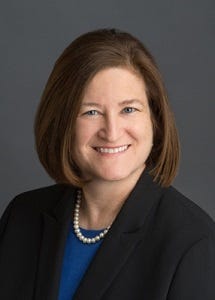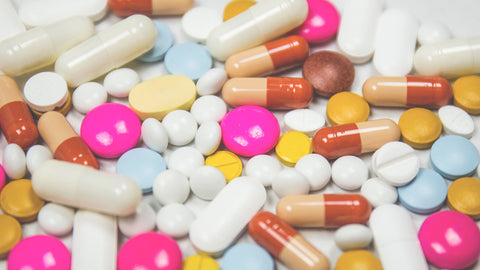ASAM President-Elect Dr. Kelly Clark’s Take On Pill Mills, Opioids & Drug Addiction
By Fallon Davis
While the government picks away at healthcare in the U.S., medical professionals have their own suggestions on what could improve the healthcare system.
Dr. Kelly Clark is an American psychiatrist, Chief Medical Officer of CleanSlate in Massachusetts and President-Elect for the American Society of Addiction Medicine (ASAM). She has a medical degree from The University of Wisconsin, four years of psychiatric residency training and two months of training on drug and opioid addiction.

A former medical director for CVS Caremark, Dr. Kelly Clark has worked in opioid treatment programs utilizing methadone and buprenorphine. She has a deep understanding of the correlation between drug addicted patient’s behavior, and the impact of illegal drug facilities on society.
What influenced you to work in addiction medicine?
I’m a psychiatrist, my background and in practicing. It’s very clear how psychiatric conditions, addiction, and pain all interact. Identifying this really brought me to a greater understanding of an addictive disease.
What is so wonderful about treating addiction is that for much of medicine we postpone deaths. We postpone deaths by hours, or days or weeks or months, but in addiction medicine, we save people’s lives. We save that person and the potential of that person to become a parent to their children, to become a caregiver to their elders, to become a solid employee and to contribute to their community. We really save the person’s potential which is an amazing thing to do as a physician.
What other organizations are you a part of?
My current job is the chief medical officer of CleanSlate Centers. CleanSlate treats in an outpatient doctor environment. We treat over 5400 patients in multiple states who are addicted to either opioids or alcohol.
I was reading about your treatment for methadone and buprenorphine. What is the protocol for the two opioids? Can methadone be given to heroin addicts?
Opioids can be painkillers or heroin. Methadone is used for people who are addicted to opioids, which includes heroin, and it is typically used in maintenance. Opioid addiction is a chronic brain disease. People do best when they are maintained on medication for as long as they need to be, which can be many years. Methadone can only be given not by a prescription for addiction but at a licensed clinic where people have to come every day to take their dose.
Buprenorphine is a medication that can just be prescribed on a piece of paper from a doctor’s office. Now, the work that I am doing involves buprenorphine as well as extended release naltrexone, which the brand name is Vivitrol, and that’s a shot that’s given once a month for people with either alcohol or opioid addiction.
In regards to the licensed clinics, a few years back, the government shutdown many free methadone clinics. As a result from the government taking this action, a lot more people went back to the streets to get drugs, mostly heroin. If clinics are working, why are they being shut down by the government?
The primary kinds of prescribing being shut down are pill mills for pain pills. These pill mills are what’s putting a lot of people out on the streets looking for opioids because they’ve sent some bad doctors prescribing things like Oxycodone, Hydrocodone or things like oxycontin. The DEA and the states have really worked hard to shut down pill mills. As those illegal facilities shut down, there’s a percentage of the people they’ve been prescribing for who are addicted.
Therefore, they will start looking for street drugs and heroin because they will remain addicted to the opioids unless they can find a good treatment. So, a good treatment is methadone, buprenorphine or Vivitrol — it’s part of a comprehensive addiction treatment program. A lot of people aren’t aware that addiction medicine is a specialty in the medical field. There is a board certification in addiction medicine.
These pill mills — they’re illegal — but they have doctors with credentials working in these facilities. How can these facilities set up if it’s an illegal practice? Why would doctors work in a situation like that? Is this like the black market where you can get the drugs online?
There are bad apples in every profession and there are some bad apple doctors. That’s just the truth of it. So bad apple doctors who have a license in a state and who have the ability to prescribe under the DEA prescription registration can see patients out of their house. They can rent a room in a strip mall and see patients for cash. They give them prescriptions without medical necessities really, without proper physical examinations and treatment planning and attention to the quality of care.
That’s what we call pill mills for pain pills and controlled medications. In most states, doctor licensing boards are driven by complaints. So somebody’s got to make a complaint about a doctor in order for that licensing board to investigate their practices in terms of a state licensing board. Well if you’re trying to find a doctor who is essentially going to sell you pills, you are not going to be the one making a complaint against those doctors. So that’s the problem.
Can you get only 1 pain prescription every 30 days from insurance companies?
That’s wrong. Sometimes people who are addicted or people who are trying to simply source drugs for diversion will go to multiple doctors. They’ll get prescriptions from multiple doctors for different kinds of opioids simultaneously.
Some people require more than one opioid. They require a short-acting for breakthrough pain like with cancer and a long-acting to help manage. So, no, there’s nothing around a law on that. What is law is that you can’t write for some resells over 30 days without being seen in some states. There are some federal laws about it but patients can absolutely get multiple prescriptions from multiple doctors for multiple opioids within a 30 day period.
What is the recovery process like for medical professionals that become addicts?
If they are involved with the state licensure department, there are better outcomes for doctors in recovery than with the general population. Once they’re involved with their state physician health program, they are monitored carefully. They’ve got the ability to get access to treatment and because typically they’ve got the psycho-social skills to have managed at a higher level earlier in their life.
As opposed to working with somebody’s who’s 25 and started using when they were 13 and everyone in their family and their world uses — that would be a patient who does not have psycho-social skills to draw on, to help them with their recovery. We are spending so much money on drug reform. In my opinion, if people want to quit, they will quit when they’re ready. The programs work if people want them to work if the people can work the program.
That’s actually kind of an older construct. When do people manage to do a good job of managing their diabetes? Well, that requires medication. It requires psychological skills in dealing with their chronic illness and requires social and family input. It’s very hard to manage diabetes when your family has ice cream every night. So, we have evidence on what kinds of intervention helps people to manage this chronic illness. That’s what we need to double down at as opposed to blaming the patient when they don’t do well — “Oh they weren’t ready yet” or “oh they weren’t working the program hard enough.”
So you’re an advocate for the patient whether they want to follow the program or not. What do you do for those patients that don’t want help? Usually, without the proper help, addicted people seem to always wind up in jail, dead or living in a homeless shelter.
Every patient is different. Every person is different. There are people who cannot manage their diabetes and end up dying prematurely because of their diabetes. Those people do exist.
Can people volunteer with CleanSlate?
No, it’s a business. So how can people get involved? Community activities are really helpful for us. There are, in many communities, advocacy groups that work to try to educate people about addiction. Health care professionals can join ASAM. Doctors can join ASAM. Allied health professionals can join ASAM. And that would be a piece of your audience. Nurses can join as associate members, etc. And there is a multitude of ways within each person’s community to reach out. Physicians and pharmacists can all join ASAM and find other medical professionals who are experts on this.
If you’re looking to expand your medical credentials in addiction medicine, contact the American Society of Addiction Medicine.

